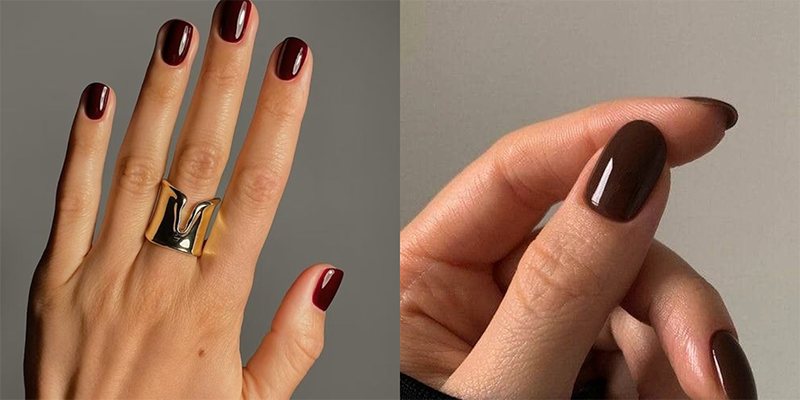The Science Behind Skin Microbiome And How To Care For It
What if the solution to healthy skin is not in the latest cream but in the microscopic inhabitants of the skin? These skin microbes are one of the most overlooked assets in skincare today.

But what is it, and how do you care for it properly? Here's how to get it right to give your skin the attention it needs.
What Is The Skin Microbiome?
The skin microbiome is like the city with its hub on the skin. It consists of hundreds of trillions of microbes that range from bacteria, fungi, and viruses. These organisms may be a little scary in their name, but for the most part, they benefit you.
Your skin microbiome fights pathogens, regulates the skin's acidity, and contributes to the skin barrier function. When the microbiome is positioned correctly, the skin tone is good, and the skin feels healthy. You may likely have dryness, acne, red skin, or irritation if disrupted. That is why skin microbiome care is vital.
But what distorts this delicate relationship? Dermatological issues such as overwashing, continued use of skin products with harsh chemicals, and pollution are among some of the worst offenders. The good news? The proper management of the skin microbiome can assist in restoring balance.
The Benefits Of Microbiome Skincare
Why is everyone talking about microbiome-friendly products these days? Because they work with your skin, not against it.
1. Strengthens the Skin Barrier: The skin barrier acts as a shield, protecting your skin from allergens and irritants. A healthy microbiome is essential for supporting this barrier. Research shows that skin care products that nurture the microbiome can help reduce skin sensitivity and minimize breakouts.
2. Reduces Inflammation: A balanced microbiome can calm inflamed skin. Conditions like eczema, rosacea, and acne often improve when your microbiome is checked.
3. Promotes Hydration: Healthy bacteria help lock in moisture. So, if you’re struggling with dry, flaky skin, focusing on skincare for a balanced microbiome might be your answer.
You can unlock these benefits by incorporating probiotic skincare and microbiome-friendly routines.
How Probiotic Skincare Supports Your Microbiome
If you are familiar with probiotics, which are suitable for your intestines, then you would not be surprised to hear that they are also good for your skin. Probiotic skincare provides the skin with healthy bacteria or helps it maintain the right bacteria to balance the skin.
Here’s how it helps:
Balances Bad Bacteria: Probiotics keep harmful bacteria in check, reducing acne and irritation.
Boosts Natural Defenses: They enhance your skin's ability to fight infections and environmental Stress.
Soothes Sensitivity: Probiotics are a gentle way to calm redness and inflammation.
Look for foods that say live cultures or prebiotics on their labels because these contribute to the growth of good bacteria. Some common ingredients, such as lactobacillus ferment or bifida ferment lysate, are perfect for the health of your microbiome.
Choosing Microbiome-Friendly Products
Not all skincare products are created equal. Some can strip away the good bacteria your skin needs. That’s why it’s essential to use microbiome-friendly products.
Here’s what to look for:
1. Gentle Formulas: Avoid products with sulfates, alcohol, or harsh preservatives. These can disrupt your microbiome.
2. Natural Ingredients: Plant-based ingredients and fermented extracts are kind to your microbiome.
3. pH-Balanced: Your skin's ideal pH is slightly acidic, around 4.5 to 5.5. Choose products that align with this range.
4. Specific Claims: Look for labels that mention “probiotic,” “prebiotic,” or “microbiome-friendly.”
By switching to microbiome-friendly products, you’re giving your skin the tools it needs to thrive.
Building A Routine For Balanced Skin Microbiome Care
How you care for your skin matters just as much as the products you use. A routine focused on skincare for a balanced microbiome is simple yet effective.
Morning Routine:
1. Gentle Cleanser: Wash your face with a non-stripping cleanser.

2. Probiotic Serum: Apply a serum with probiotics to restore the skin’s balance.
3. Moisturizer: Choose a lightweight and microbiome-friendly formula.
4. Sunscreen helps shield your skin from UV damage, which can affect the microbiome.
Evening Routine:
1. Double Cleanse: First, remove makeup with a gentle oil cleanser, followed by a microbiome-safe cleanser.
2. Treatment Products: Use treatments like niacinamide or ceramides that support the barrier without harming your microbiome.
3. Nourishing Moisturizer: Apply a richer moisturizer to lock in hydration overnight.
Consistency is key to caring for your skin microbiome. Over time, you'll notice your skin becoming more resilient and radiant.
Taking The Next Step In Skin Microbiome Care
With the science and benefits presented, it is time to reconsider the calendar of skin treatments. The first step should be implementing microbial-friendly products and excluding cleaners such as bleach and other abrasive chemicals.
Our skin is like a garden that contains bacteria, yeast, viruses, and other microorganisms. These microorganisms can grow and keep our skin healthy and beautiful in the right environment. It is time to become a part of the enhanced defensive powerhouse that is the future of probiotic skincare!
Taking this journey isn't just about skincare trends. It's about understanding your skin deeper and choosing products and routines that work with it.





